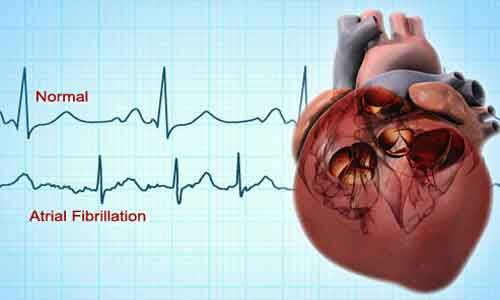- Home
- Medical news & Guidelines
- Anesthesiology
- Cardiology and CTVS
- Critical Care
- Dentistry
- Dermatology
- Diabetes and Endocrinology
- ENT
- Gastroenterology
- Medicine
- Nephrology
- Neurology
- Obstretics-Gynaecology
- Oncology
- Ophthalmology
- Orthopaedics
- Pediatrics-Neonatology
- Psychiatry
- Pulmonology
- Radiology
- Surgery
- Urology
- Laboratory Medicine
- Diet
- Nursing
- Paramedical
- Physiotherapy
- Health news
- Fact Check
- Bone Health Fact Check
- Brain Health Fact Check
- Cancer Related Fact Check
- Child Care Fact Check
- Dental and oral health fact check
- Diabetes and metabolic health fact check
- Diet and Nutrition Fact Check
- Eye and ENT Care Fact Check
- Fitness fact check
- Gut health fact check
- Heart health fact check
- Kidney health fact check
- Medical education fact check
- Men's health fact check
- Respiratory fact check
- Skin and hair care fact check
- Vaccine and Immunization fact check
- Women's health fact check
- AYUSH
- State News
- Andaman and Nicobar Islands
- Andhra Pradesh
- Arunachal Pradesh
- Assam
- Bihar
- Chandigarh
- Chattisgarh
- Dadra and Nagar Haveli
- Daman and Diu
- Delhi
- Goa
- Gujarat
- Haryana
- Himachal Pradesh
- Jammu & Kashmir
- Jharkhand
- Karnataka
- Kerala
- Ladakh
- Lakshadweep
- Madhya Pradesh
- Maharashtra
- Manipur
- Meghalaya
- Mizoram
- Nagaland
- Odisha
- Puducherry
- Punjab
- Rajasthan
- Sikkim
- Tamil Nadu
- Telangana
- Tripura
- Uttar Pradesh
- Uttrakhand
- West Bengal
- Medical Education
- Industry
Adding vein of Marshall ethanol infusion to catheter ablation improves AF outcomes: JAMA

USA: The addition of vein of Marshall ethanol infusion to the standard treatment of catheter ablation increases the likelihood of successful treatment for atrial fibrillation as compared to catheter ablation alone, suggests a recent study in the journal JAMA. The findings were also presented at the annual meeting for the American College of Cardiology.
Atrial fibrillation (AF) is irregular and abnormal heart rhythm. If treated AF can lead to blood clots, heart failure and stroke. Catheter ablation, the standard treatment for AF, uses electrical energy for resetting the heartbeat. While the procedure is effective for some patients, in some it needs to be repeated multiple times to get the desired results.
The Vein of Marshall Ethanol for Untreated Persistent Atrial Fibrillation (VENUS) trial by Miguel Valderrábano, Houston Methodist DeBakey Heart and Vascular Center and Research Institute, Houston, Texas, and colleagues aimed to determine whether vein of Marshall ethanol infusion could improve ablation results in persistent AF when added to catheter ablation.
The trial was an investigator-initiated, National Institutes of Health–funded, randomized, single-blinded trial conducted in 12 centers in the United States. It included 350 patients with persistent AF referred for first ablation. Patients were randomly assigned to receive either catheter ablation alone (n = 158) or catheter ablation combined with vein of Marshall ethanol infusion (n = 185) in a 1:1.15 ratio to accommodate for 15% technical vein of Marshall ethanol infusion failures. The primary outcome was freedom from AF or atrial tachycardia for longer than 30 seconds after a single procedure, without antiarrhythmic drugs, at both 6 and 12 months.
316 (92.1%) completed the trial, of the 343 randomized patients (mean [SD] age, 66.5 [9.7] years; 261 men).
Key findings of the study include:
- Vein of Marshall ethanol was successfully delivered in 155 of 185 patients.
- At 6 and 12 months, the proportion of patients with freedom from AF/atrial tachycardia after a single procedure was 49.2% (91/185) in the catheter ablation combined with vein of Marshall ethanol infusion group compared with 38% (60/158) in the catheter ablation alone group.
- Of the 12 secondary outcomes, 9 were not significantly different, but AF burden (zero burden in 78.3% vs 67.9%), freedom from AF after multiple procedures (65.2% vs 53.8%), and success achieving perimitral block (80.6% vs 51.3%) were significantly improved in vein of Marshall–treated patients.
- Adverse events were similar between groups.
"Addition of vein of Marshall ethanol infusion to catheter ablation versus catheter ablation alone among patients with persistent AF increased the likelihood of remaining free of AF or atrial tachycardia at 6 and 12 months. Further research is needed to assess longer-term efficacy," concluded the authors.
"Effect of Catheter Ablation With Vein of Marshall Ethanol Infusion vs Catheter Ablation Alone on Persistent Atrial Fibrillation: The VENUS Randomized Clinical Trial," is published in the journal JAMA.
DOI: https://jamanetwork.com/journals/jama/article-abstract/2772281
Dr Kamal Kant Kohli-MBBS, DTCD- a chest specialist with more than 30 years of practice and a flair for writing clinical articles, Dr Kamal Kant Kohli joined Medical Dialogues as a Chief Editor of Medical News. Besides writing articles, as an editor, he proofreads and verifies all the medical content published on Medical Dialogues including those coming from journals, studies,medical conferences,guidelines etc. Email: drkohli@medicaldialogues.in. Contact no. 011-43720751


